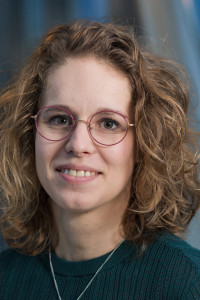PhD Student

Recent studies have shown that intradermal vaccination has great potential for T cell-mediated cancer immunotherapy. However, classical intradermal immunization with a hypodermic needle and syringe has several drawbacks. Therefore, in this project I am focusing on the development of an effective vaccination platform for molecularly-defined cancer vaccines via novel skin-dissolvable microneedles.
The skin is an easily accessible vaccination site, which contains sensitive keratinocytes and high numbers of dendritic cells (DCs). These cells shape the natural first barrier to induce strong immunity against incoming pathogens and are the key targets for therapeutic T cell vaccines. Intradermal vaccination can yield superior immunity whilst requiring 3-20 fold decreased doses compared to standard intramuscular vaccination.
To empower the intradermal administration route, novel microneedles will be developed in this project to obtain improved cancer vaccination strategies. Rationally-designed, state-of-the-art vaccines are molecularly-defined (as the antigen only contains or encodes for the antigenic molecules of cancer cells or pathogens) and are therefore very safe. Currently, several of such vaccine platforms (e.g., mRNA, DNA and synthetic peptides) proved successful in (models of) cancer and infectious diseases, such as COVID19. Intradermal injection of such vaccines via classical injection needles is invasive, difficult to perform and lacks reproducible induction of immune responses. Therefore, this project aims to improve vaccine delivery and efficacy in a safe and painless manner by intradermal vaccination using newly designed, biodegradable microneedles.
I finished my bachelor's degree in chemistry at the Hogeschool Vlissingen and sequentially did my premaster and master's degrees in biomedical sciences at Leiden University. I joined the parasitology department at LUMC for my first research internship, where I worked on the functional alteration of schistosome glycosylation. In my final internship at the department internal medicine of the LUMC, I focused on the delivery of siRNA loaded lipid nanoparticles during ex vivo kidney machine perfusion aiming to reduce proinflammatory responses. In August 2023, after completing my master’s degree, I joined the Tumor Immunology group as PhD student to work on microneedle cancer vaccine development under supervision of prof. Ferry Ossendorp and dr. Koen van der Maaden.
Looking for information on one of our topics, a new place to conduct your research or connect to experienced researchers to join forces with? Feel free to contact us!